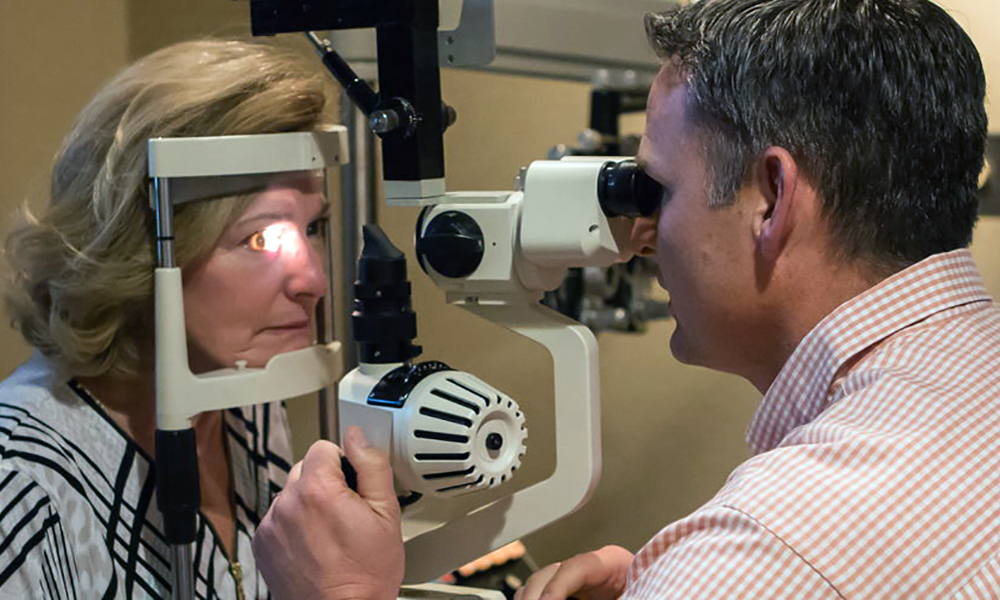Cataract Management
A Prolific Eye Condition
More than 90 percent of us will develop cataracts. Aging is the most common cause. This is due to normal eye changes that begin to happen after age 40. That is when normal proteins in the lens start to break down. This is what causes the lens to get cloudy. People over age 60 usually start to have some clouding of their lenses. However, vision problems may not happen until years later.
Cataracts rarely cause blindness or visual impairment to the extent that you cannot function daily. However, a simple lens removal surgery will return full-color vision and crisp eyesight to your life – you may not realize just how much you miss it!

Signs and Symptoms
Notice a Change
If colors become muted, or you feel like your eyesight is just a bit less sharp than you expect, you should get checked for cataracts.
Not the Glasses
If you repeatedly clean your lenses but your vision still appears a little cloudy or dirty, you may have a cataract rather than needing more wiping or a stronger prescription.
Night-Vision Issue
If you are becoming extra-sensitive to light or have difficulty seeing at night, especially if you are older than 60, it's time to make an appointment.
How We Help
We provide expert and experienced cataract management care - including diagnosis, referral for surgery if needed and pre and post-operative care.
This is the eye test with which you are probably the most familiar – reading a series of letters from a distance. If you have anything less than a 20:20 vision test result, we know that there is a possible cataract problem.
We focus quite an intense beam of light through a small slit and use it to illuminate your eye. This allows us to view your cornea, iris and lens, the areas where cataracts form. Using magnification, your optometrist can observe any abnormalities in the area that could indicate cataracts at any stage of development.
If we refer you to a surgeon to remove the cataract, we collaborate with them and assist you before the procedure. We will advise you on any dietary restrictions leading up to the surgery, provide you with the appropriate expectations and give you pointers to make the recovery period a little easier.
Since cataract removal surgery is one of the most common practices today, there are very few complications in the days and weeks following the procedure. However, if you do experience discomfort, pain, irritation or any abnormal sensation with your eye (or vision), then simply get in touch. We will call you back in for assessments and recommend ongoing care if needed.

